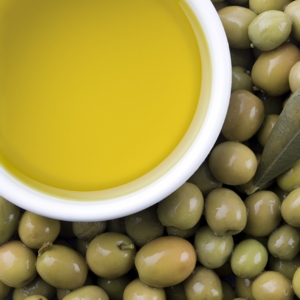The beginning of a new year is always a good time to review issues that seem to keep coming up. My theory is, another mini-generation of new cooks is always coming up, wanting guidance. Today we’ll look at Cooking Oils: Good Bad and Ugly…

Today, I’m going to address the wide selection of cooking oils available to the home cook in our tumultuous time. There are really too many to make sense of, if you try to differentiate between them individually. I’ve developed a simple three-slot categorizing system to help you figure it out.
Not that many in the ‘Good’ slot
First, lets look at the preferred, most healthy oils…
Canola Oil
In spite of what some folks – mainly about poor grades of Canola – this is the most used oil and fryer fat in the restaurant industry. It’s what we cooked with all the way through culinary school. It’s relatively inexpensive, flavourless and forgiving when subjected to high temperatures.
Peanut/Safflower/Sunflower Oils
These are among what I call the exotic oils. They are the choice of ‘healthy’ cooks who want to maximize the impression that the3ir dishes and products are healthy. And they are healthy, make no mistake. But they are very expensive compared to Canola and some impart a potentially unwanted flavour of their own to foods.
Olive Oil
This is the staple of the Old World and the darling of Mediterranean Diet devotes. It’s actually really good for you. But there remains a massive global traffic in improperly-graded and downright counterfeit Olive Oil that has muddied its reputation. Nevertheless, it’s relatively expensive, has a distinctive flavour all its own, and may be the best of the cooking oils.
The Bad
Corn Oil
Not that bad in some applications. But it reacts badly to heat (a low smoke point). And it contains a high percentage of Omega-6 fatty acids which can cause or exacerbate systemic inflation. I use it for baking, when oil is called for over butter.
Soy Bean Oil
Not a bad choice, except that most of it is at least partly hydrogenated – which makes it high in bad fats. It also has a low smoke point which limits is usefulness for frying.
‘Vegetable Oil
It’s automatically a bad choice because it’d a blend of oils, some of which are worse than others. And the majority component is usually soy bean oil (see above). Whatever the oils involved, ‘Vegetable Oil’ is usually heavily processed, and carries with it all the caveats that go with Processed Foods.
Cottonseed Oil
The nouveau-popular oil has a 2:1 ratio of unsaturated to saturated fats. That makes it okay on its face. But it also contains other compounds that may not be so good for humans. Too much of it can be toxic.
The Ugly
Palm Oil
Pressed from the fruit of the Red Palm, and other related species. It’s 50 percent saturated fat and 40 percent unsaturated. Which makes it a poor choice, just for that. Because it’s dirt cheap – accounting for over 1/3 of the total world-wide production of food oils. It also carries a political and ecological burden associated with its primitive production process.
Coconut Oil
Not top be confused with Palm Oil. It has an enticing flavour and is resistant to high hea5t. But its a saturated fat through and through. Just don’t do it. Unless you want to make totally authentic Asian recipes that specifically call for it. But only now an then.
Lard
Just forget it. It’s rendered animal fat, and as such is totally unacceptable to vegetarians and vegans. Not to mention totally saturated. I know some otherwise sensible folks who insist on using lard for short pastry. That’s homage to0 ‘the old days’. But I have to agree that their pastry is flakier and tastier than any I’ve ever made with butter. By the way, forget about vegetable shortening, it’s just solidified, uber-hydrogenated vegetable oil. (See above.)
The last word
Whether your deciding factor in choosing a cooking oil is cost, healthiness or temperature resistance, you can find a suitable one in our first category. I tend to ‘go long’ on my oils, keeping Canola, Olive and Corn in the house, so I can choose the best one for what I’m going to be cooking.
Hope this helps!
~ Maggie J.

